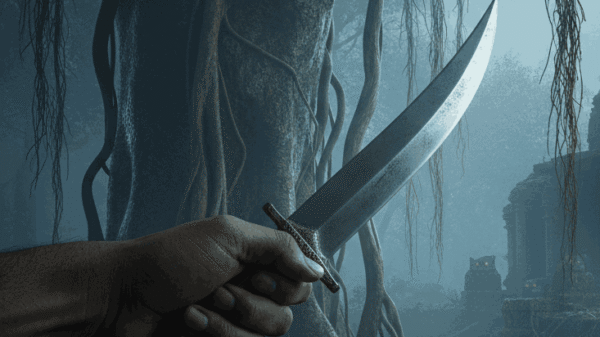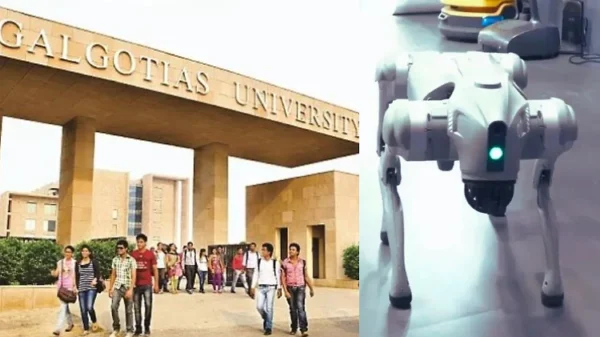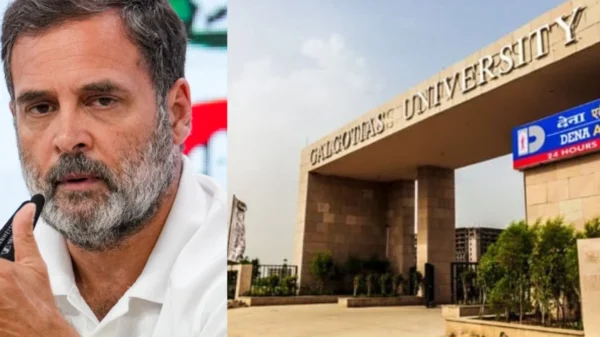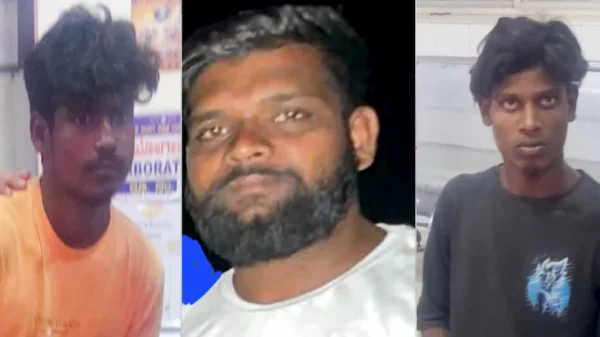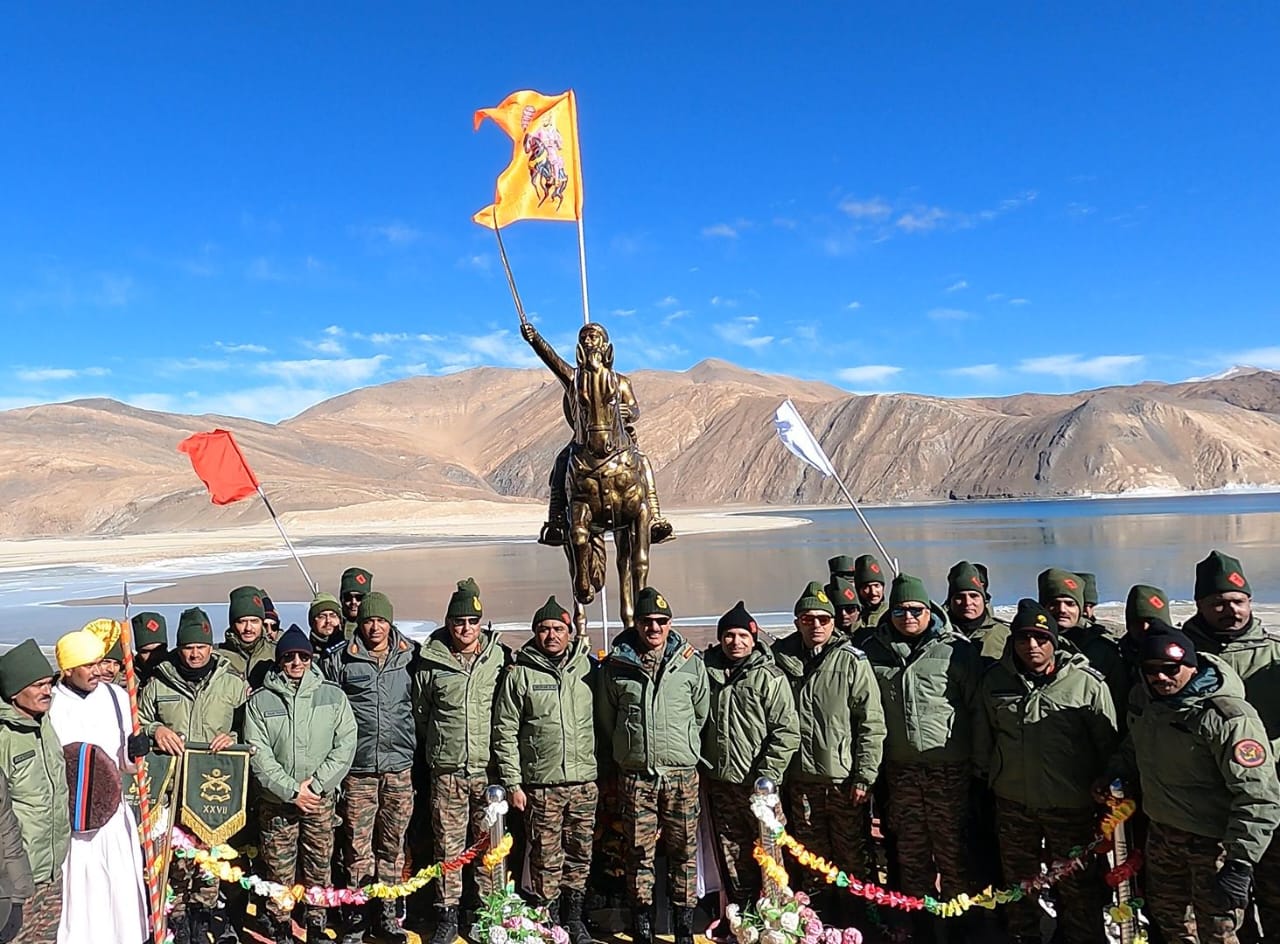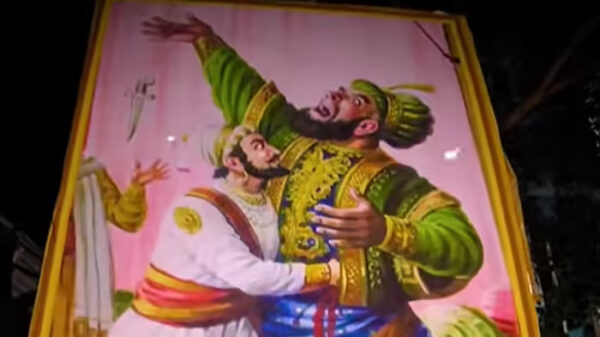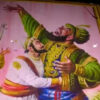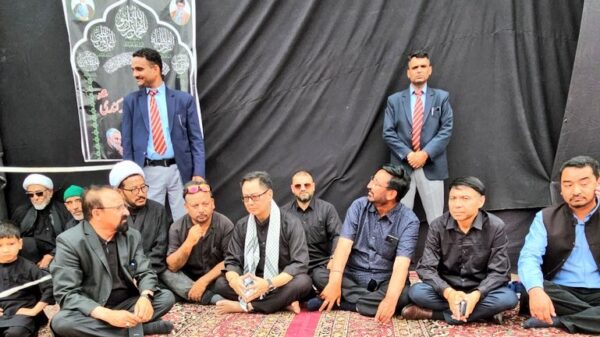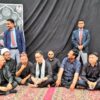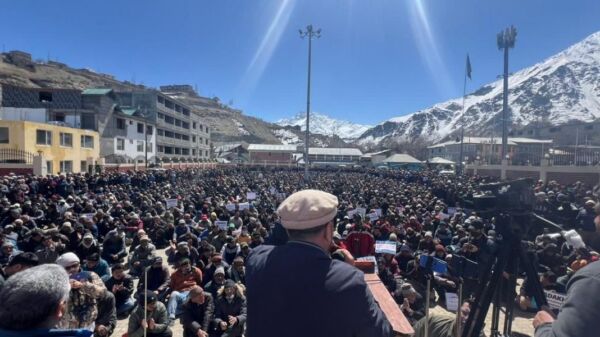The installation of a statue of Maratha king Chhatrapati Shivaji on the banks of Pangong Tso in Ladakh has sparked a debate. Local residents and army veterans are questioning its relevance to the region.
Konchok Stanzin, a councillor from Chushul, shared his concerns on social media. “As a local resident, I must voice my concerns about the Shivaji statue at Pangong. It was erected without local input, and I question its relevance to our unique environment and wildlife,” he wrote, urging authorities to focus on community and nature-friendly projects.
Some veterans, including Colonel (Retd) Sanjay Pande, suggested that local historical figures might have been a better choice. “Zorawar Singh fought for this region. He died fighting in Tibet. Why is Shivaji’s statue here? He deserves to be in Ladakh,” he said.
The Maratha Light Infantry unit deployed in the area installed the statue. A senior defence official explained, “The statue was not ordered by headquarters but was installed by the unit to honour their heritage and motivate soldiers. It is placed within their area of responsibility.”
Political activist Sajjad Kargili echoed local sentiments, saying, “Shivaji has no cultural or historical relevance in Ladakh. While we respect his legacy, statues of local heroes like Khree Sultan Cho or Seenge Namgyal would have been more meaningful. Even these shouldn’t be placed in environmentally sensitive areas like Pangong.”
The statue, inaugurated on December 26 by Lt. Gen. Hitesh Bhalla, General Officer Commanding Fire and Fury Corps, is located at an altitude of 14,300 feet. “The towering symbol of valour and justice is a source of inspiration for generations,” the army said.
This isn’t the first Shivaji statue in the region. In November 2023, a similar statue was unveiled at the headquarters of the 41 Rashtriya Rifles near the Line of Control in Kupwara.
Brigadier (Retd) Hardeep Singh Sohi defended the practice of units installing symbols related to their traditions. “In infantry units, morale is crucial. Statues like Shivaji’s serve as motivation and a connection to history,” he said.







